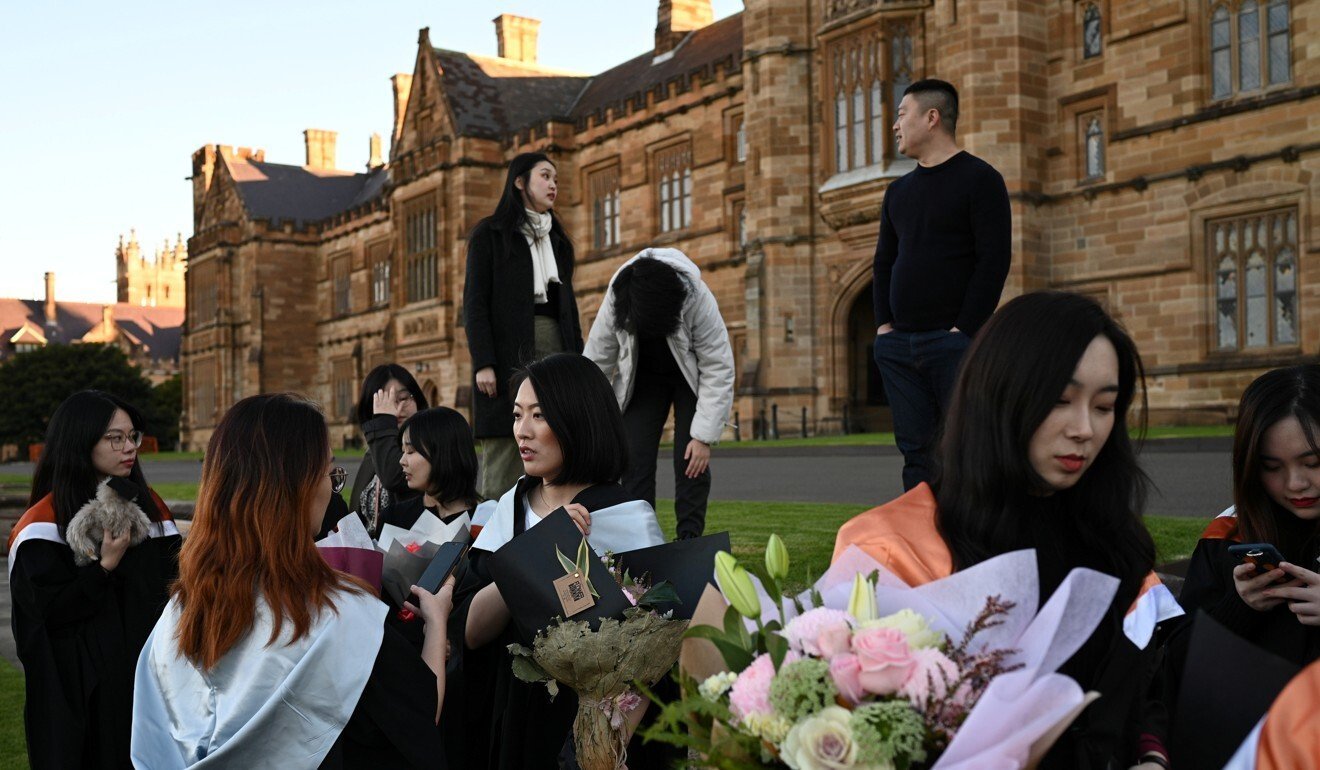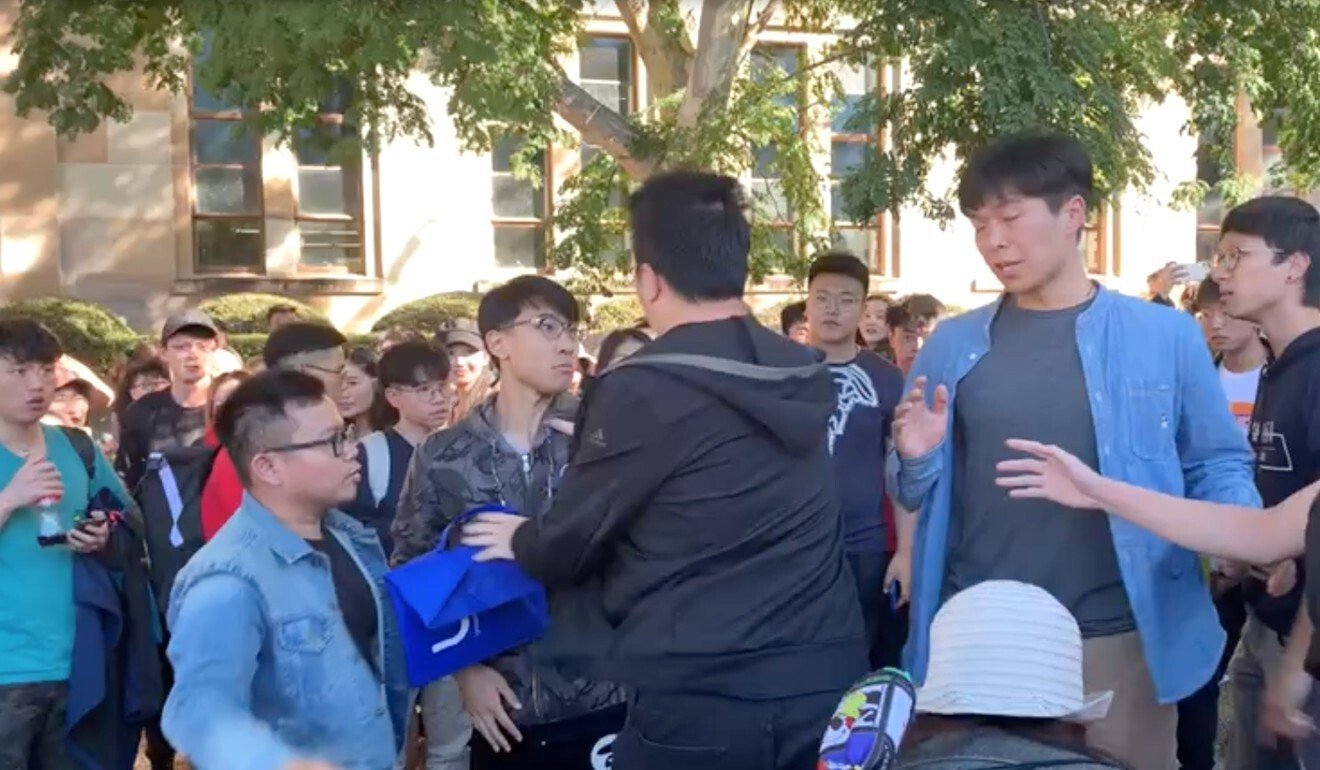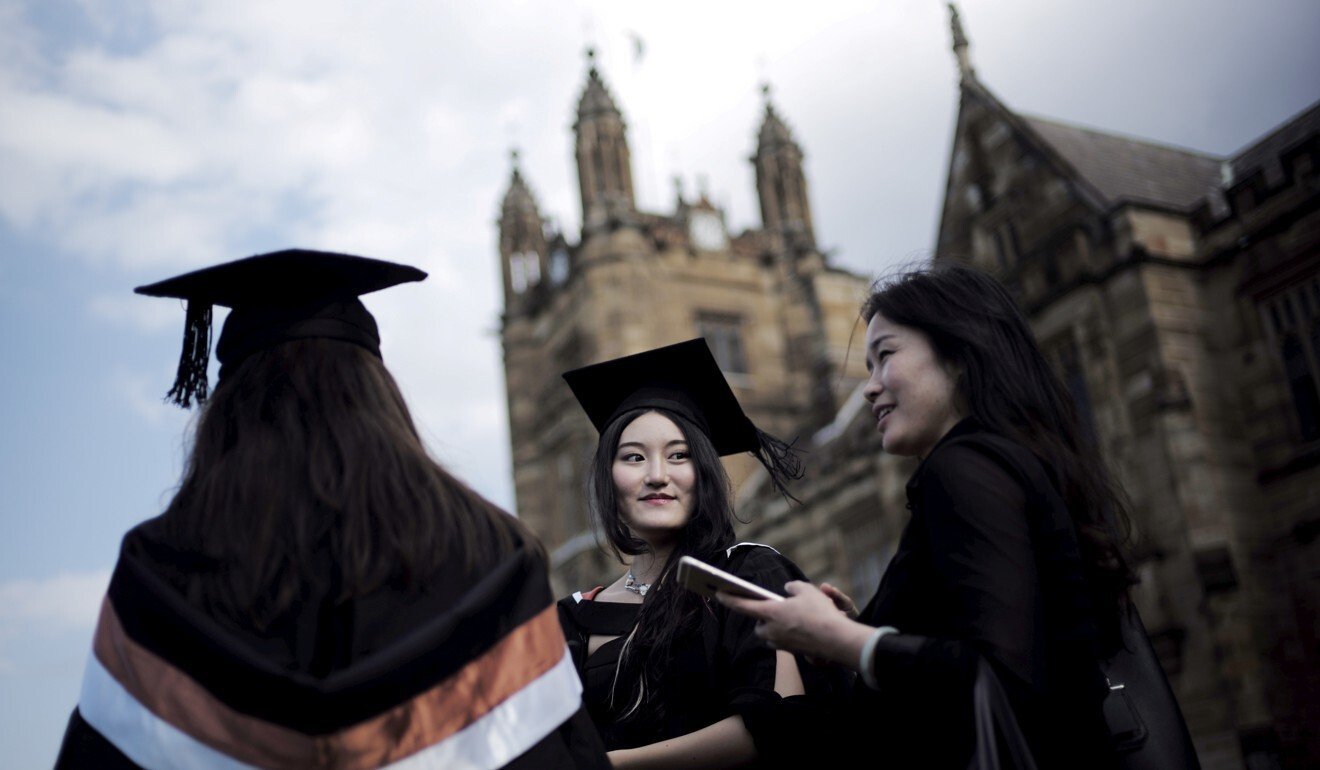
Australian universities move to protect Hongkongers from security law
Teaching staff from at least five major universities in Australia are taking precautions to protect students from Hong Kong’s extraterritorial national security law, with one institution scrutinising courses where it fears Hong Kong students could be reported to authorities by their mainland Chinese classmates.
Measures the lecturers are taking include warning Hongkonger and mainland Chinese students about the scope of the law, allowing anonymous submissions of assignments, and in general treading more carefully on topics considered sensitive by Beijing, they told This Week in Asia.
Beijing imposed the sweeping legislation on Hong Kong in June, banning secession, subversion, terrorism and collusion with external forces, although offences are broadly defined. The maximum penalty for each crime is life imprisonment, and the legislation claims jurisdiction everywhere on the planet. The law has been heavily criticised, and nine countries – including the United States, Britain, Australia and Germany – have since suspended extradition treaties with the city.
Hong Kong Police have arrested more than two dozen people under the law, although only two have so far been charged. The city’s authorities have also issued arrest warrants for a number of activists based overseas, including one US citizen.
Kevin Carrico, a senior lecturer in Chinese Studies at Monash University in Melbourne with a focus on nationalism and identity, said Hongkongers studying in Australia were concerned that comments they made overseas would get them into trouble with the city’s authorities.
‘PLANS TO PROTECT STUDENTS’
At La Trobe University in Melbourne, an email circulated on August 20 by vice-chancellor John Dewar among senior university officials led to what a faculty member familiar with the situation described as an “audit” to identify courses where Hongkonger students could potentially be reported to authorities by their mainland Chinese classmates.
Dewar’s email raised concerns about the law in the context of a Wall Street Journal article published a day earlier that described how staff at US universities – including Harvard and Princeton – were taking precautions such as anonymous discussions and introducing content warnings on courses, said the faculty member, who requested anonymity.

In September, The Guardian reported that Oxford University students specialising in the study of China were being told to submit some papers anonymously to protect them from being subject to the new legislation. Students were also expected to be warned that it would be a disciplinary offence to tape classes or share them with outside groups.
The La Trobe faculty member said the “overreach of the national security law” was a deep concern for him.
“I think universities need to take some actions to ensure they are not putting these students in harm’s way,” they said. “For my university, at least we’re starting that and that’s positive.”
The faculty member said the audit had only found one course in which Hongkonger and mainland students were enrolled together, and no further action had been taken as the course had already ended. They said the process would be repeated in the upcoming semester, but teaching staff had yet to reach a consensus on what to do about courses where mainland Chinese and Hongkongers mixed, with differing views on whether proactively asking students about their concerns or intervening if problems arose was a better approach.
The faculty member also stressed that they believed the national security law was likely a “quite minimal” issue at La Trobe, and was also concerned about an overreaction stirring up Sinophobia at a time of increasingly acrimonious relations between China and Australia.
La Trobe University had 2,125 mainland Chinese students enrolled in 2017, the most recent year for which figures are available. The university did not report figures for students from Hong Kong, although they were not among the five biggest groups of international students.
Nick Bisley, dean of humanities and social sciences at La Trobe, said he was aware of many universities “developing plans to protect students” but wanting “to keep it quiet for a range of reasons, mostly due to the pretty grim state of Australia-China relations”.
“There’s no question of this affecting what or how we teach, it’s a matter of helping protect our students,” he said.

La Trobe University confirmed it had discussed “possible consequences of Hong Kong’s security laws” along with other Australian universities, but declined to comment on specific precautions or whether students had raised concerns.
“Protecting our students is paramount, as are free speech and enabling a diversity of views,” a spokesperson said.
In Hong Kong, the heads of five publicly funded universities backed the security law ahead of its passage. Individual academics have reviewed syllabuses and stopped recording student discussions out of concern for academic freedom, even while expressing optimism teaching will continue as before without self-censorship.
The central and Hong Kong governments have credited the law with restoring order to the city after last year’s anti-government protests, while opposition figures and human rights activists have condemned the legislation as draconian and incompatible with values such as freedom of speech.
‘LIMITS AND UNCERTAINTIES’
International students form about 20 per cent of Australia’s university population, with about 14,000 Hongkongers and 216,000 mainland Chinese students enrolled across the country’s 43 tertiary institutions in 2020. The Australian Trade and Investment Commission said this represented a respective decline of about 3 per cent and 9 per cent since the previous year and the start of the pandemic.
One humanities lecturer at the University of Sydney, where the Chinese student body is among the largest in the country, said he felt the need to take extra care when discussing sensitive topics in class.
“The fact that I have students in China does mean that I might tread more carefully around Taiwanese, Hong Kong, and minority authors, and [make me] uncertain about how far I can or should draw out students on questions like the constructed nature of ethnicity, and how far they can respond,” said the lecturer, who spoke on condition of anonymity.
He said that when he asked a senior colleague for advice on how to broach sensitive topics such as the 1989 Tiananmen crackdown and Taiwan during video classes on Zoom, he was advised to self-censor.
“Their advice was ‘you already know what to do. You should cut any materials that could endanger students’,” he said. “Friendly advice, on the lines of ‘for the good of you and your students’, from someone whom I know to be appalled by the [national security law].”
Although he “had not really” followed that suggestion, he said, the environment created “limits and uncertainties”.

Esther Klein, who lectures in Chinese history and language at the Australian National University, said she planned to emulate precautions introduced at tertiary institutes overseas such as Oxford University.
“I never record online tutorials in any case, and I love the idea of students anonymously presenting each other’s work, as this has great potential for high-quality peer feedback,” Klein said. “We already have anonymous submission of major assignments, and I will be willing to take further precautions upon request.”
However, Klein said she believed academics should be realistic about what they could do to shield students from risk.
“As long as authoritarian governments exist, there is no true protection from them,” she said. “The best thing we can do as teachers is to show how good it is to be able to freely and fearlessly discuss any issue whatsoever. We need to show that the benefits of this outweigh its dangers and disadvantages, and that, in a free marketplace of ideas, good ideas can and generally do win out over bad ones.”
The University of Sydney declined to comment on whether it had taken specific steps in response to the law or whether students had raised concerns, but a spokesperson said the university’s academic environment was “underpinned by key principles of freedom of academic inquiry and freedom of academic expression”.
Anthony J. Spires, deputy director of the Centre for Contemporary Chinese Studies at the University of Melbourne, said he had raised the law and its extraterritorial nature with his students.
“Since we’re teaching only online now, I’ve not had the chance to talk with them face-to-face to find out if it raises any concerns for them,” he said.
The University of Melbourne said it was committed to ensuring students and staff could exercise their freedom of speech, without elaborating on the issues raised by the national security law.
“Wherever concerns or issues arise regarding the exercise of free speech, the university seeks to take all steps to safeguard this freedom within its capacity to do so,” a spokesperson said.
Jonathan Benney, a lecturer in Chinese studies at Monash University in Melbourne, said he had discussed the issue with some students one on one, but his university had not received enough concerns to warrant a “general approach” or adjust its approach to teaching.
“I can say that some students from the People’s Republic of China are indeed concerned about whether the work they submit can be observed by people other than academics – for example, when essays are to be submitted online, some students have checked with me who can see their work,” Benney said.
“But that particular situation is covered by what we already do.”










